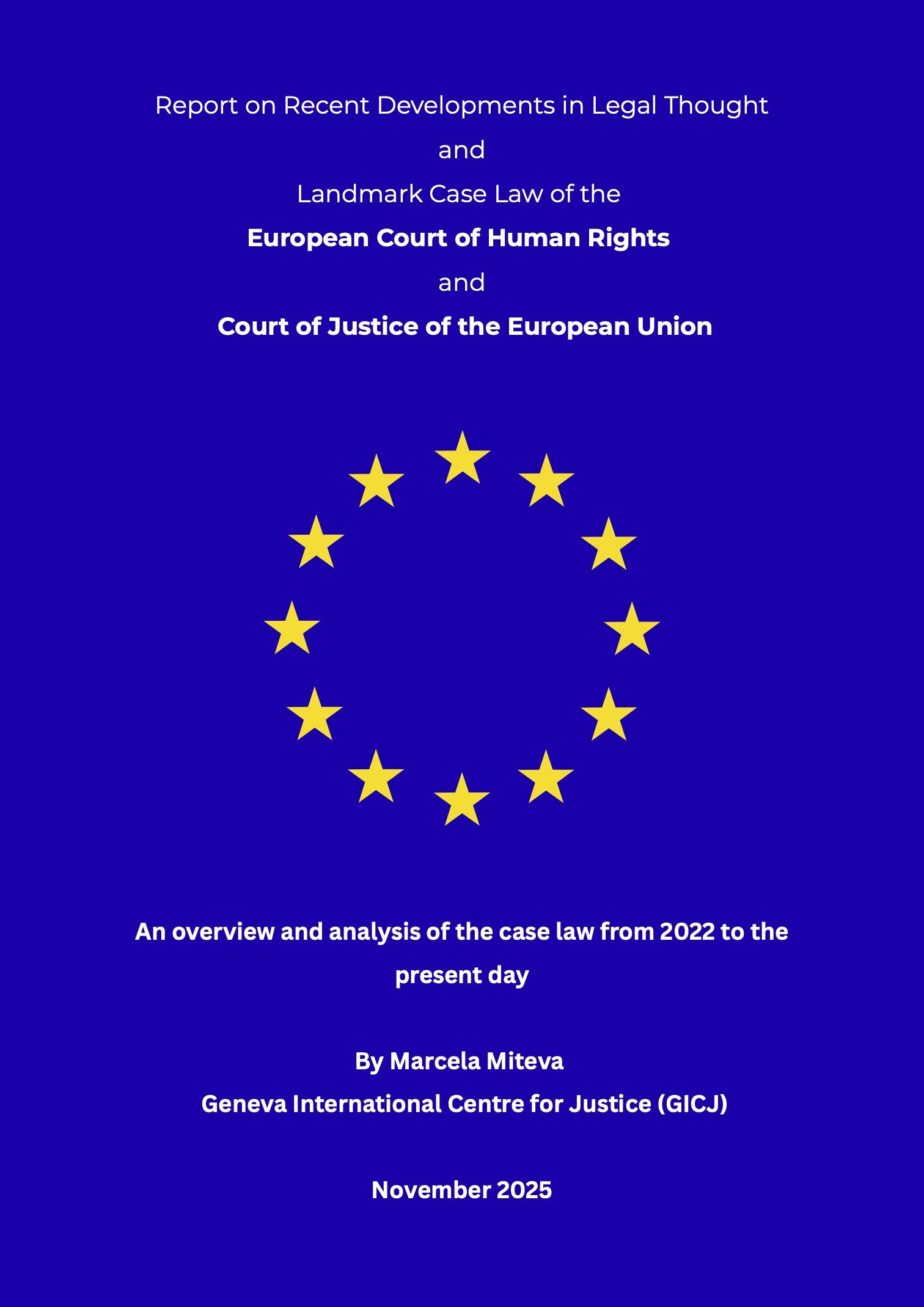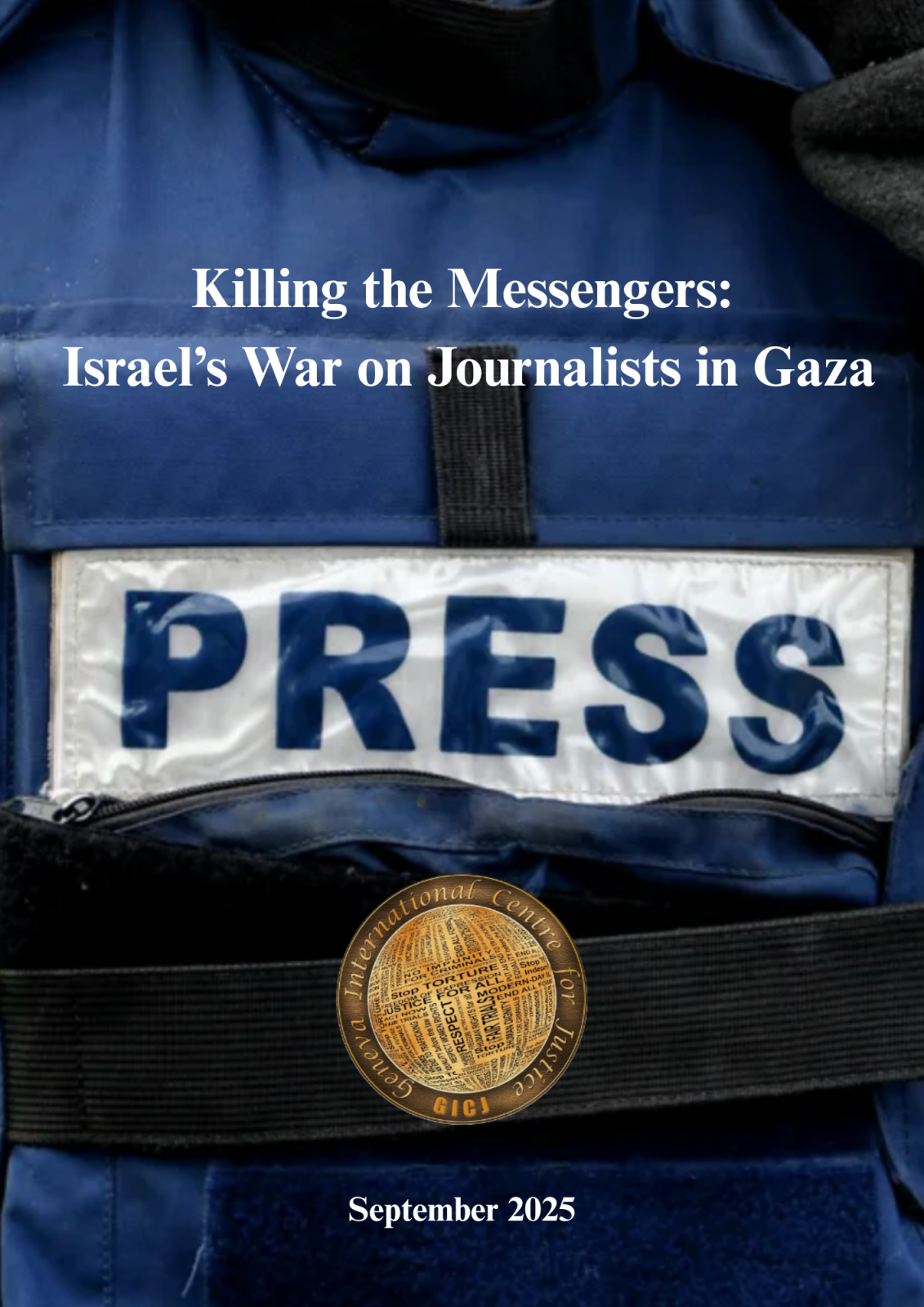Syria: when the tragedy goes further
The destruction of Al-Quds hospital leaves 250,000 people in increasing danger of being left without medical care
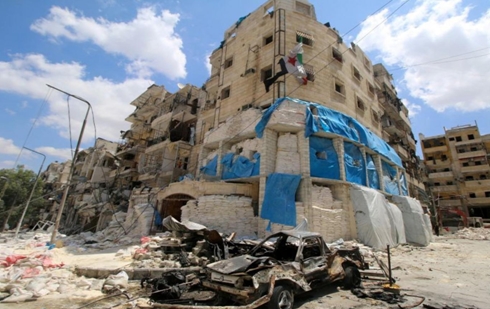
The damaged Al-Quds hospital after the bombing- The doors and windows
were covered by sandbags in an attempt to keep out bullets and shrapnel,
but these provided no protection against air strikes.
 Alessia Vedano, Human rights officer at GICJ
Alessia Vedano, Human rights officer at GICJ
28th April 2016 marks another sad date in the history of the already very bloody Syrian civil war. An airstrike was carried out on the al-Quds paediatric hospital in Aleppo, which resulted in the killing of at least 27 people, including three children and six staff members. The 34-bed hospital offered services including an emergency room, obstetric care, an outpatients department, an inpatients department, an intensive care unit and an operating theatre and was therefore a vital asset for the citizens. Eight doctors and 28 nurses worked full time in the hospital, which was also the main referral centre for paediatrics in Aleppo. The facility was supported by Medecines Sans Frontieres (MSF) along with the International Committee of the Red Cross (ICRC), which loudly express their indignation and outrage for such a deadly and inconsiderate act. As per reported on The Independent, Marianne Glasser, the head of the ICRC, pointed out that this wasn’t the first time that lifesaving medical services have been hit. She then called on all parties to not attack hospitals.1
Twenty-four hours later a clinic in the Marja district of the city – this one providing treatment for chronic illnesses – was also bombed. Medecines Sans Frontieres (MSF) reported that seven of the facilities it ran in Syria have been bombed in the last three months alone. Two hospitals in the town of Maarat al-Noaman to the east, including one working with MSF, were hit by multiple strikes earlier this year. It is still vivid in our memory the attack on the Baghdad Hospital in Hreitan on Christmas Day last year, which was target of a direct hit, resulting in the killing of a medical worker, Ali Hamedo, and injuring ten other members of staff and 20 patients.
MFS reports on an article published on the 29th April, in the aftermath of the deadly hospital attack, that the organization is extremely concerned about “the estimated 250,000 people in increasing danger of being totally cut off and without medical care.”2
Various articles and reports attribute the responsibility of this latest attack to the Russian and Syrian governments, advising that targeting medical facilities has for long been their strategy to weaken the rebel-held territories. Both governments deny any involvement, claiming that official air force planes had not been in areas where air raids were reported. Others attribute responsibility to US forces, who, on their part, ensure that all airstrikes were being conducted nowhere near the city, bouncing the guilt back to the Syrian government. Beside each side’s innocence claims, it has been confirmed that the deadly airstrike was carried out by a jet fighter, leaving in any case the possible responsible within those listed above.
Behind the political blame-game that is not surprisingly becoming the umpteenth tool of propaganda for the ideologies of the different involved parties, lays the real tragedy: the world, once more, witnesses to innocent people paying the price of bad, interest-orientated politics.
What is worse, is that such appalling events occurred in the realms of an already very fragile “peace process” that was taking place in Geneva only a few weeks before in the form of a formal “cessation of hostilities”, supported by both US and Russian leaders as well as by the government forces and the main opponents. Reality of facts tells us, however, that such hostilities are still very much predominant on Syrian grounds and they ultimately escalated in more inconsiderate violence, which, together with the growing perception of little movement being made from the government side, has resulted in the opposition pausing the peace talks in the past weeks. Since the beginning of the negotiations, in January 2016, it was evident that not all dealing parties were optimistic on the future outcome of the talk rounds. The main opposition block, the Saudi-backed High Negotiation Committee (HNC) has always proved sceptical concerning the negotiation process, blaming what they prospected it will be a big diplomatic failure on the lack of a strong international political will. However, in light of the increasingly deteriorating situation and the recent land and air attacks, Staffan de Mistura, the UN special envoy for Syria crisis, called upon the leaders of the countries to revitalise the damaged peace-building process as he briefed the Security Council on the collapse of the latest talks.
What happened to the Al-Quds paediatric hospital, and to many more medical facilities across Syria, is nothing less than a monstrous crime, not only for the loss of civilian lives, including that of innocent children, but also for the loss of the more-than-ever essential medical staff. It has been reported that, among the medical casualties, the last paediatrician in Aleppo has also been killed by the bombing.
| Dr Muhammad Waseem Maaz, known as rebel-held Aleppo's most qualified paediatrician died in the attack. |
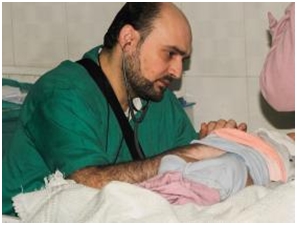 |
The facility, located on the bottom floor of a five-storey building in Sukkari district, is today no more than another dismembered pile-up of rubble in a city of ghosts, and, considering it was the main paediatric care centre in the area and providing that the number of medical facilities left in the city had already been not sufficient to handle more than two million people, the tragedy goes even further- the victims are not only those who lost their lives in the attack, but also those who will be denied necessary healthcare due to the destruction of another essential medical structure. After 5 years of intense civil war, Syrian healthcare system had already deteriorated to unimaginable levels. What remains of hospitals and medical centres today is a small number of overcrowded facilities that lack medical equipment and, of course, medicines. In February last year, the NGO Physicians for Human Rights said it had documented 224 attacks on 175 health facilities since the start of the conflict, and 599 medical personnel had been killed. The remaining medical personnel, who have enormously decreased in number also due to professionals fleeing the country, work in a stressful and insecure environment and have to deal with inadequate instruments and hundreds of badly injured patients every day which cannot be guaranteed with appropriate treatments.
Further to the 27 reported victims who were found to have died in the Al-Quds hospital attack, at least other 200 people have been killed in other air strikes, shelling and rocket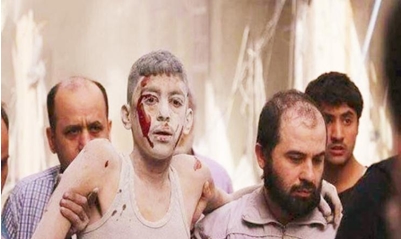 fire since Friday 29th April, according to local news media and activists on the ground. The number of civilian casualties resulted by different attacks carried out by different actors, have only brought to one common result: widespread death and suffering of those that such airstrike campaigns ought to “protect”. Killing civilians is a war crime, yet the international community once more fails in preventing these atrocities from happening. Muskilda Zancada, MSF head of mission in Syria, fairly points out: “Where is the outrage among those with the power and obligation to stop this carnage?”.
fire since Friday 29th April, according to local news media and activists on the ground. The number of civilian casualties resulted by different attacks carried out by different actors, have only brought to one common result: widespread death and suffering of those that such airstrike campaigns ought to “protect”. Killing civilians is a war crime, yet the international community once more fails in preventing these atrocities from happening. Muskilda Zancada, MSF head of mission in Syria, fairly points out: “Where is the outrage among those with the power and obligation to stop this carnage?”.
This question, like many others, remains unanswered. Expressions of shock and outrage are not enough when a policy of accountability does not follow up, and when events like the one we witnessed in Aleppo happen regularly with the purpose of increasing the vulnerability of the population. Bouncing accusations and ignoring the real entity of the damage made is just simply unacceptable, and surely does not provide fertile grounds for a real peace process to be put in place.
1 Quotation taken from the following article http://www.independent.co.uk/news/world/middle-east/syria-crisis-aleppo-rocked-by-further-hospital-attacks-a7007696.html
2 For more details, see full article at the following webpage: http://www.msf.org/en/article/syria-update-airstrike-al-quds-hospital
Participation of GICJ at Human Rights Council Sessions
Human Rights Council - 35th regular session (6 June - 24 June 2017)
Human Rights Council - 34th regular session (27 February - 24 March 2017)
Human Rights Council - 33rd regular session (10 September - 30 September 2016)
Human Rights Council - 32nd regular session (13 June - 1 and 8 July 2016) Human Rights Council - 31st regular session (29 February - 24 March 2016)
Human Rights Council - 30th regular session (14 September - 2 October 2015) Human Rights Council - 29th regular session (15 June - 3 July 2015) Human Rights Council - 22nd special session on the human rights situation in Iraq in light of abuses committed by the Islamic State in Iraq and the Levant and associated groups - 1 September 2014: Human Rights Council - 21st special session on the human rights situation in the Occupied Palestinian Territory, including East Jerusalem - 23 July 2014: Human Rights Council - 26th regular session (10 - 27 June 2014): Human Rights Council - 25th regular session (3 - 28 March 2014): Human Rights Council - 24th regular session (9 - 27 September 2013): Human Rights Council - 23rd regular session (27 May - 14 June 2013): Human Rights Council - 22nd regular session (25 February - 22 March 2013): Human Rights Council - 21st regular session (10 - 28 September, 5 November 2012): Human Rights Council - 19th regular session (27 February - 23 March 2012): |
||







